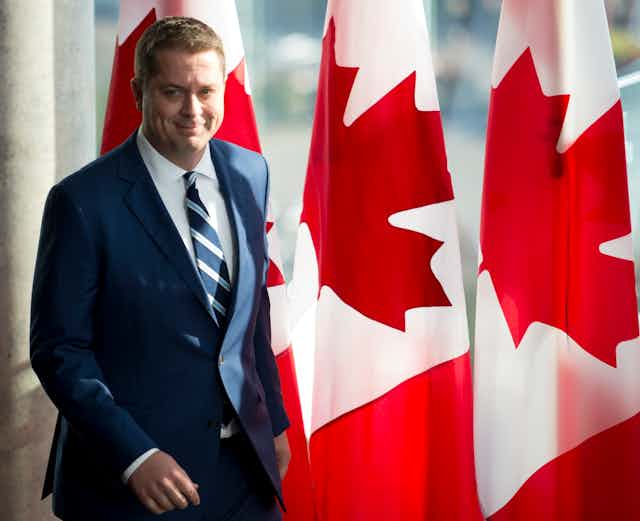Conservative Leader Andrew Scheer recently made two promises on the campaign trail. He said that a new Conservative government would:
Launch a judicial inquiry into the SNC-Lavalin affair.
Introduce the No More Cover-Ups Act to allow the RCMP to access information protected by cabinet secrecy by making an application to the Supreme Court of Canada.
These promises were prompted by the fact that the ethics commissioner, and allegedly the RCMP, were denied access to seemingly relevant information about the SNC-Lavalin affair based on cabinet confidentiality.
Cabinet confidentiality is meant to permit ministers to debate decisions freely in private while remaining united in public.
Read more: SNC-Lavalin & the need for fresh thinking around independence and interference
Unfortunately, it’s doubtful that Scheer’s promises would enable Canadians to learn more about the SNC-Lavalin affair and improve the current legal regime in a meaningful manner. Here’s why.
Inquiry into SNC-Lavalin
It’s unclear what Scheer meant when he said that he would initiate a “judicial inquiry” into the SNC-Lavalin affair. He probably meant that he would establish a “commission of inquiry” under the Inquiries Act to investigate the matter and appoint a judge to preside over it.
However, the use of the term “judicial inquiry” in this context is a misnomer: “commissions of inquiry” are part of the executive — not the judicial — branch of government.
There’s something deeply troubling about the idea of a government setting up a commission of inquiry to investigate the conduct of a previous government of a different political complexion.
A reasonable observer could be forgiven for thinking that such a decision would be based on political self-interest aimed at undermining political opponents rather than the public interest.
Setting this issue aside, an inquiry into the SNC-Lavalin affair would likely not shed more light on the matter. Indeed, by convention, the commissioner wouldn’t be able to access the Liberal government’s cabinet confidences without Justin Trudeau’s consent. And it’s unlikely such consent would be given.
Cabinet secrecy reform
Scheer’s proposal to modify Section 39 of the Canada Evidence Act would allow the RCMP to access cabinet confidences by making an application to the Supreme Court. This proposal is perhaps a small step in the right direction, but it lacks ambition and is ill-conceived.
Access to relevant cabinet confidences in exceptional cases shouldn’t be limited to the RCMP. Other investigators, like the ethics and information commissioners, should also be able to access cabinet confidences when it’s necessary to fulfil their mandate.
Courts should also be able to access cabinet confidences when the interest of justice outweighs the interest of good government in order to fairly adjudicate disputes between litigants and the state.
Scheer’s proposal is ill-conceived because the decision to authorize access to cabinet confidences should first be made by a judge of the Superior Court or Federal Court. That decision could subsequently be appealed to a Court of Appeal, and then ultimately to the Supreme Court.

But according to Scheer’s plan, the application from the RCMP for access to cabinet confidences goes immediately to the Supreme Court. As the final appeal court for Canada, the Supreme Court shouldn’t be called upon to decide, in the first instance, who can get access to cabinet confidences and when.
Furthermore, a meaningful reform of cabinet secrecy or confidentiality would clarify the definition of the ambiguous term “cabinet confidences” that’s used in various federal statutes. There are regrettably many reported cases in which this term was misinterpreted and misapplied by public officials.
Last words
Ensuring that the scope of cabinet secrecy is clearly defined and that cabinet immunity claims are decided by an independent and impartial body wouldn’t be revolutionary.
It would simply bring the federal system in line with the law in Canadian provinces and in other Commonwealth countries, such as the United Kingdom, Australia and New Zealand.
Cabinet secrecy reform is an important subject that should be taken seriously by all parties.
It’s not unusual for politicians to make grandstanding promises of more open government during an election campaign. Canadians can only hope that such promises are implemented in a thoughtful and comprehensive manner — rather than being quickly forgotten — after the election.
Our democracy deserves that much.

